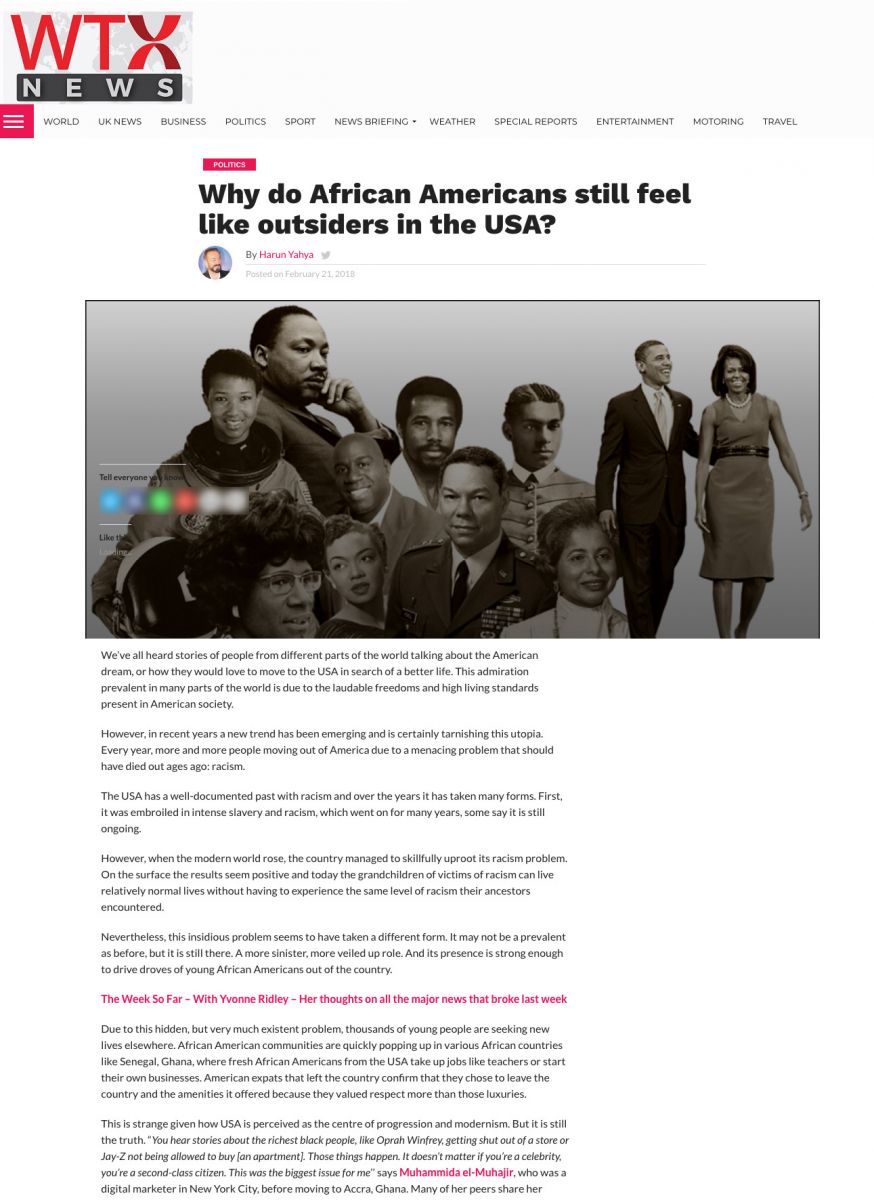
We’ve all heard stories of people from different parts of the world talking about the American dream, or how they would love to move to the USA in search of a better life. This admiration prevalent in many parts of the world is due to the laudable freedoms and high living standards present in American society.
However, in recent years a new trend has been emerging and is certainly tarnishing this utopia. Every year, more and more people moving out of America due to a menacing problem that should have died out ages ago: racism.
The USA has a well-documented past with racism and over the years it has taken many forms. First, it was embroiled in intense slavery and racism, which went on for many years, some say it is still ongoing.
However, when the modern world rose, the country managed to skillfully uproot its racism problem. On the surface the results seem positive and today the grandchildren of victims of racism can live relatively normal lives without having to experience the same level of racism their ancestors encountered.
Nevertheless, this insidious problem seems to have taken a different form. It may not be a prevalent as before, but it is still there. And taken up a more sinister, more veiled up role. And its presence is strong enough to drive droves of young African Americans out of the country.
Due to this hidden, but very much existent problem, thousands of young people are seeking new lives elsewhere. African American communities are quickly popping up in various African countries like Senegal, Ghana, where fresh African Americans from the USA take up jobs like teachers or start their own businesses. American expats that left the country confirm that they chose to leave the country and the amenities it offered because they valued respect more than those luxuries.
This is strange given how USA is perceived as the center of progression and modernism. But it is still the truth. "You hear stories about the richest black people, like Oprah Winfrey, getting shut out of a store or Jay-Z not being allowed to buy [an apartment]. Those things happen. It doesn't matter if you're a celebrity, you're a second-class citizen. This was the biggest issue for me’’ says Muhammida el-Muhajir, who was a digital marketer in New York City, before moving to Accra, Ghana. Many of her peers share her sentiments and complain that no matter how successful they were, they always felt like outsiders in the USA.
Despite lack of comparable luxuries or amenities, they say they feel much happier in their new locations. El-Muhajir continues: "In America, you're always trying to prove yourself; I don't need to prove myself to anyone else's standards here. I'm a champion, I ran track and went to university, and I like to win, so I refuse to be in a situation where I will never win."
She certainly has a point. According to a report on the New York Times, New York has more hate groups than Georgia, Alabama or other states usually viewed as less friendly towards black people. In addition, New York City had 380 hate crimes in 2016, which was the highest nationwide. This is indeed worrying because New York is supposed to be one of the most progressive states of the country.
According to a report in US News, black preschoolers are far more likely to be suspended than white children. While in kindergarten through the second grade, black children are three times more likely to be suspended than their white teenagers. In the workplace, black college graduates are twice as likely as whites to struggle to find jobs.
A study found that people with “black-sounding names” had to send out 50 percent more job applications than people with “white-sounding names” just to get a call-back.
The racial divide is also real, about 73 percent of whites own homes, compared to only 43 percent of blacks. The gap between median wealth for whites (about $91,000) compared to blacks (about $7,000) is staggering, and that gap has tripled in just the past 25 years.
A black man is three times more likely to be searched at a traffic stop, and six times more likely to go jail than a white person. Local prosecutors are much more likely to upgrade a case to felony murder if you’re black than if you’re white. Qualified black jurors are all too often illegally turned away -as much as 80 percent of the time- in the jury selection process.
Given all these alarming findings, it is not very surprising to see that many African Americans feel like they’re going to be happier in other countries. Needless to say, such discriminatory attitudes cannot be generalized as belonging to the entirety of American society, but it is also true that there should be nothing left of that ugly mentality in this beautiful country.
With the current generation of successful black stars and icons, African Americans are making inroads into closing the gap, but is the administration doing enough to support them.
0 comments:
Post a Comment